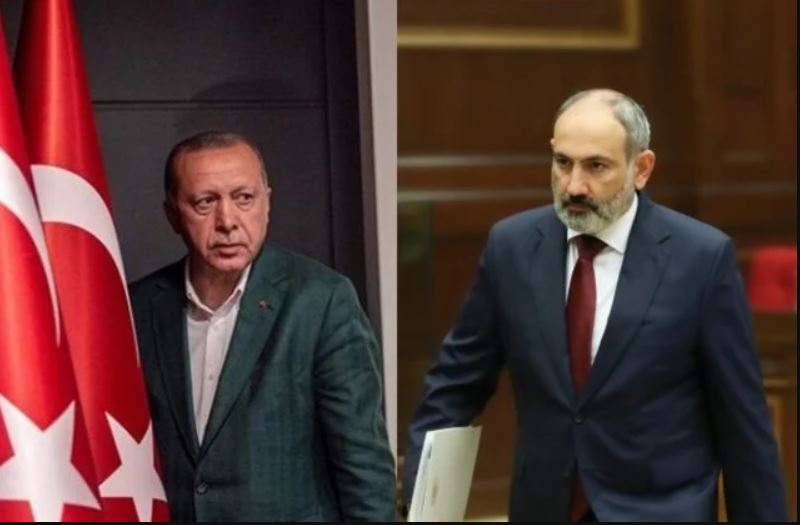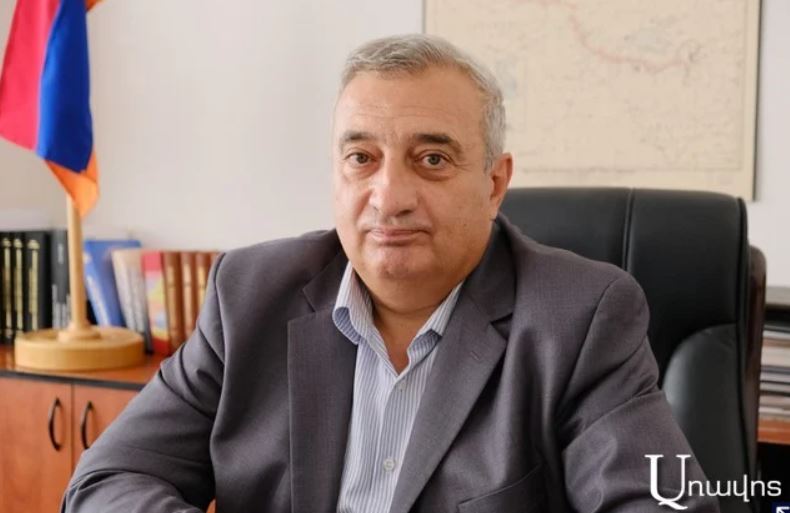Turkish President Recep Tayyip Erdogan announced on September 20 at the 77th session of the UN General Assembly, “The liberation of the occupied lands of Azerbaijan has given a historic chance to establish lasting peace and stability in the South Caucasus. That is why Turkey supports the ongoing processes between Azerbaijan and Armenia. Even if the clashes that took place in recent days have cast a shadow on this good atmosphere, we still believe that it is possible to conclude a comprehensive peace agreement between the two countries in the shortest possible time.”
It is noteworthy that days after the September 13 Azerbaijani attack, Armenian Prime Minister Nikol Pashinyan said, “The situation that was created in no way diminishes the importance of the peace agenda.” Aravot spoke about this topic with historian Ashot Melkonyan, director of the History Institute of the National Academy of Sciences.
– Mr. Melkonyan, taking into account the aforementioned statement, what messages are being sent to Armenia? Let’s also remember that Erdogan himself was the first to speak “about the end of the military operation on the borders of the Republic of Armenia” after the visit of Nancy Pelosi, the speaker of the US House of Representatives.
– In any case, Pelosi’s visit to Armenia showed that not all roads are closed. There are doors. I cannot definitely say that after that visit everything related to Armenia will go smoothly, especially since we had expectations from our strategic ally Russia that were not justified. However, from the context of the same Erdogan’s speech, it can be understood that both Azerbaijan and Turkey have understood that they cannot continue their activities in this region with impunity because it is a link in a common chain. Why, because there is the same insolent, cynical policy towards the USA. There are territorial claims to the islands of the Aegean Sea.
Read also
The same policy applies to Cyprus. It seems that the same applies to Georgia, which has friendly relations, because Erdogan has repeatedly said that Akhalkalaki and Akhaltsikhe are the homeland of Meskhetian Turks, he himself is a Meskhetian Turk, and he dreams of when they should return to their Akhaltsikhe. They have also repeatedly talked about the Adjarian autonomy in Batumi, which they want to occupy politically after conquering economically. The principle of “zero problems with neighbors” that Turkey once put forward has completely failed. Now there are 100% problems with all neighbors, except for Azerbaijan, which does not have a border with Turkey, but may have one if this impudent, cynical plan is implemented.
– According to your analysis, what does the collective West want from us at this moment? What price will we pay for this fragile ceasefire?
– I think that the activation of the political direction of the USA and also of France puts Turkey and Azerbaijan in a straitjacket to some extent. Recent events suggest that they can be put in a straitjacket, and that is why they have started to speak with reservations about their aggressive policy. They have started talking about the fact that the “era of peace” seems to be very close, and it is necessary to speed up the conclusion of reconciliation on their terms, realizing that the opposing parties in this matter, Iran and the USA, have interestingly come to a common denominator. I hope that if the relations between Iran and the USA regarding the nuclear program turn into normal interstate relations, then we will only benefit from it. I would like to address our people. There is no need to despair. We have real leverage to protect our homeland. In any case, the heroic struggle of the ‘90s showed this. Let’s not forget that this truce was not the result of foreign intervention, but the bravery of the Armenian soldier. They paid for this with their lives. Our number one ally is the Armenian soldier, the army.
– There are comments that the interest of the USA is to isolate Iran in our region, and by supporting Turkey and Azerbaijan’s demand for a corridor through the territory of Armenia, the USA wants to isolate Iran.
– It is more Israel’s desire. The USA and Iran have reached a common denominator on several points, and it seems that there is light at the end of the tunnel. If this happens and the problem is solved, we will benefit from it immediately. It is no coincidence that Israel is already complaining about how the US can make concessions to Iran while trying to find a common language on the issue of the nuclear program. In my opinion, the US is more interested in the nuclear program because, after all, nuclear war threatens everyone. The USA has every chance to economically tie a country like Iran to itself. Before the Islamic revolution, these relations were even friendly, and Iranian oil was freely delivered to the United States.
Luiza Sukiasyan





















































